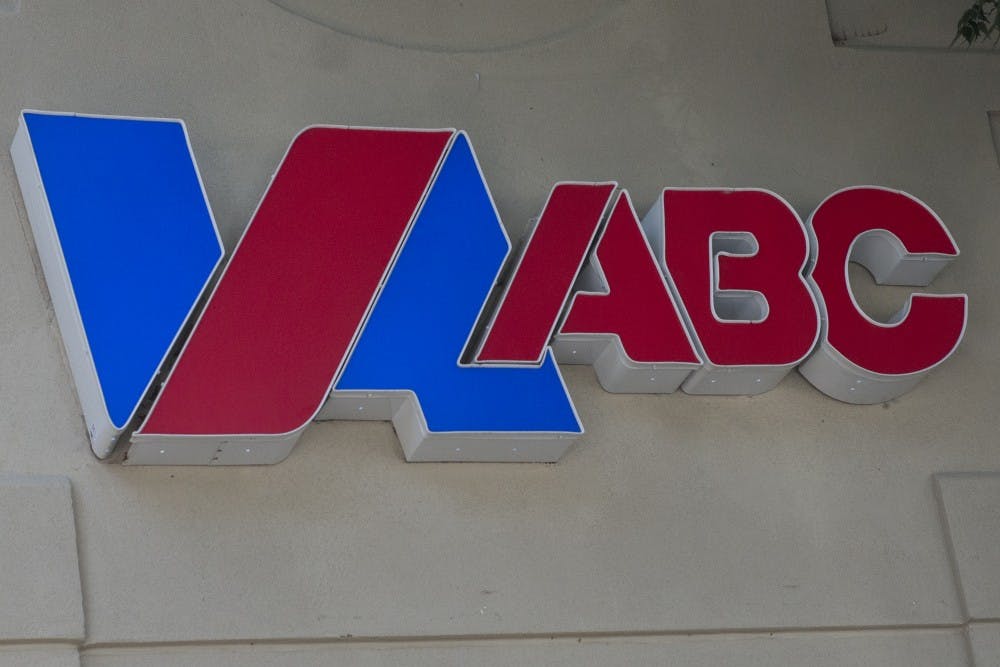The Virginia House of Delegates passed House Bill 1842 Wednesday allowing the proof of grain alcohol permitted to be sold in government stores to be raised from 101 to 151. Eighty-three members of the House voted in favor of the bill while only 14 members cast opposing votes.
The bill was introduced by Del. Barry Knight (R-Virginia Beach), who said he proposed the bill to standardize Virginia’s position on the issue with most other states in the nation.
“[The bill] brings Virginia equal to every other state in the nation other than Vermont. We’re the only two states that don’t have this legislation to allow 151 clear alcohol,” Dustin Rinehart, Knight’s legislative aide, said. “It makes no sense why we can’t be like everybody else in the United States … I see no reason why we can’t have that legislation.”
Grain alcohol is a neutral, odorless, tasteless and colorless alcohol distilled from a grain-based product, typically with a high ethanol content. It is often mixed with other beverages to create punches and cocktails.
101 proof alcohol has an alcohol content of 50.5 percent — 151 proof is 75.5 percent alcohol. The sale of grain alcohol in Virginia is regulated by the Virginia Department of Alcoholic Beverage Control.
“Currently, Virginia ABC stores sell nine products that are 151 proof or more, and we wish to add clear grain alcohol to this list,” Knight’s office said in an email statement.
A similar bill passed in both chambers of the Virginia General Assembly last year, but Gov. Terry McAuliffe vetoed it due to strong disapproval from officials of higher education.
Grain alcohol can be a concern for colleges and universities dealing with underage alcohol use, binge drinking and sexual assault. The beverage's lack of color and aroma is often associated with spiking drinks.
“Grain alcohol is odorless, tasteless and colorless. This, in combination with high potency makes the alcohol incredibly dangerous, especially if included in mixed drinks or punches,” Katie Brandon, third-year College student and Student Council Legislative Affairs Committee member, said in an email to The Cavalier Daily. “Students have the potential to become much more intoxicated, much faster without necessarily knowing until it’s ‘too late.’ The alcohol can (and has in the past) been used as a date rape drug.”
The University has similarly expressed opposition to the bill.
“The University is opposed to this legislation,” University spokesperson Anthony de Bruyn said in an email statement.
Brandon said she hopes students and officials of higher education will continue to express the same disapproval for the bill it received a year ago.
Knight and his office, however, spent the last six months negotiating with individuals and organizations who previously displayed opposition to the bill, including the Virginia College Alcohol Leadership Council.
The bill increases the legal proof of grain alcohol in government stores only. This enables the ABC to control what products are sold at certain stores and restrict the availability of high-potency alcohol at college campuses.
Additionally, Knight agreed to a five-year sunset clause for the bill, meaning it would expire July 1, 2022 and legislators would have to revisit it.
Rinehart foresees little effect on the public with the passing of the bill.
“I see nothing changing within the public just as 40 other states in the nation have it,” Rinehart said.
Brandon, on the other hand, thinks there may be negative implications for the University community.
“University administrators and first responders may see an increase in unintentional alcohol-poisonings or other issues that come with overconsumption of alcohol,” Brandon said.
Student Council will work with the University administration to offer clear information to the student body if the bill makes it past the governor’s desk, Brandon said.
The bill will be sent to the Virginia State Senate for review beginning on Feb. 8.







